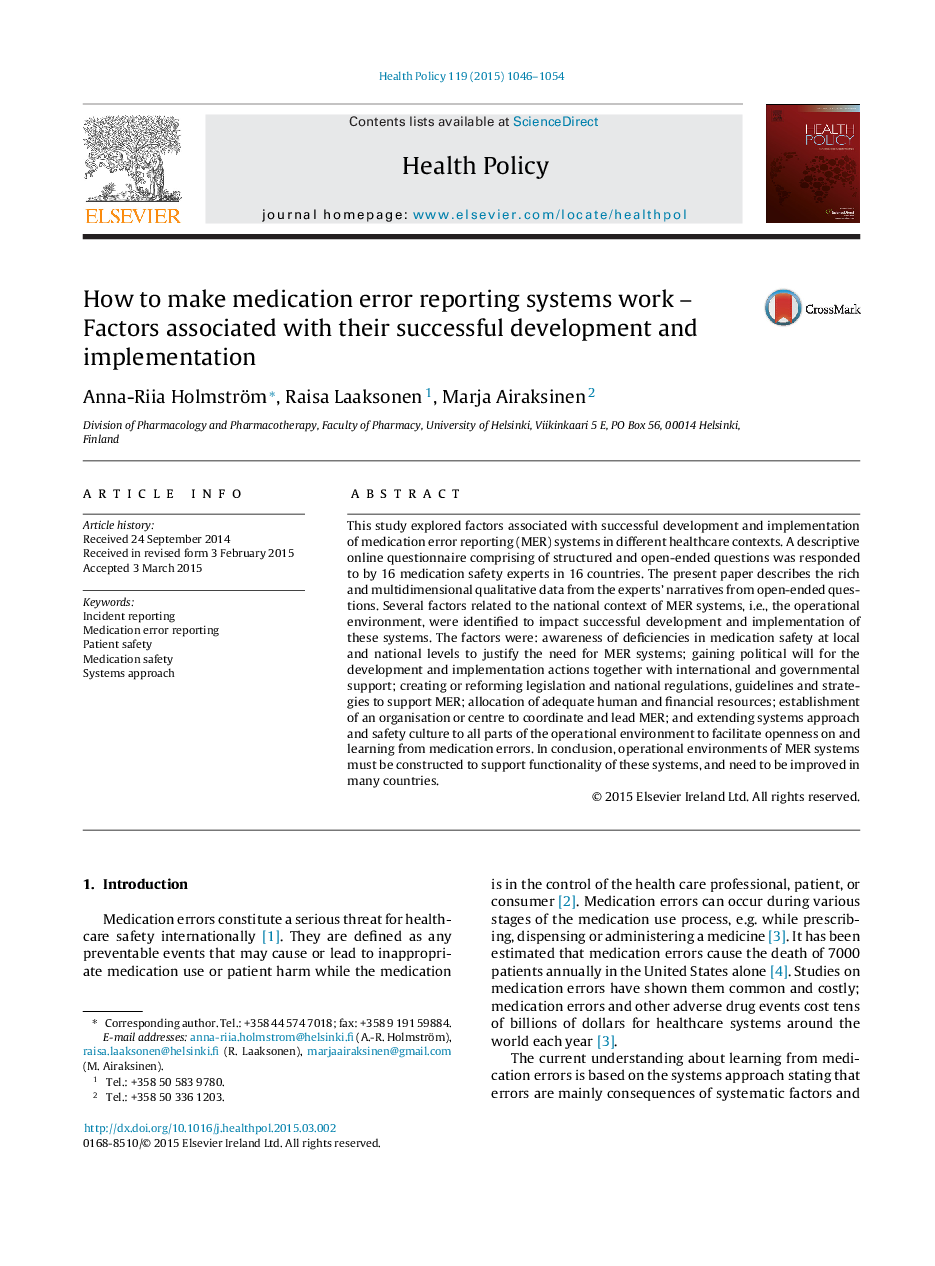| Article ID | Journal | Published Year | Pages | File Type |
|---|---|---|---|---|
| 6239400 | Health Policy | 2015 | 9 Pages |
â¢Several factors at national and local levels impact functionality of MER systems.â¢These factors should be considered when developing and implementing MER systems.â¢National recognition of deficiencies in medication safety needs to precede actions.â¢Political will and adequate resources are crucial when introducing MER systems.â¢National coordination and leadership must be organised for functional MER systems.
This study explored factors associated with successful development and implementation of medication error reporting (MER) systems in different healthcare contexts. A descriptive online questionnaire comprising of structured and open-ended questions was responded to by 16 medication safety experts in 16 countries. The present paper describes the rich and multidimensional qualitative data from the experts' narratives from open-ended questions. Several factors related to the national context of MER systems, i.e., the operational environment, were identified to impact successful development and implementation of these systems. The factors were: awareness of deficiencies in medication safety at local and national levels to justify the need for MER systems; gaining political will for the development and implementation actions together with international and governmental support; creating or reforming legislation and national regulations, guidelines and strategies to support MER; allocation of adequate human and financial resources; establishment of an organisation or centre to coordinate and lead MER; and extending systems approach and safety culture to all parts of the operational environment to facilitate openness on and learning from medication errors. In conclusion, operational environments of MER systems must be constructed to support functionality of these systems, and need to be improved in many countries.
